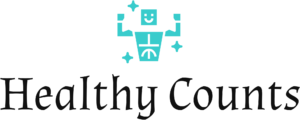Social media has become a ubiquitous platform that influences health behaviors and shapes public awareness on a global scale. As individuals increasingly turn to social networking sites for information, support, and community engagement, the impact of social media on health behaviors and awareness has become a topic of significant interest and concern within healthcare and public health sectors.
Influence of Social Media on Health Behaviors
Social media platforms play a pivotal role in shaping health-related behaviors by disseminating information, influencing attitudes, and facilitating health-related interactions among users. Key ways in which social media influences health behaviors include:
Health Information Dissemination: Social media serves as a powerful vehicle for sharing health-related information, research findings, and public health messages in real-time. Healthcare organizations, government agencies, and advocacy groups leverage social media channels to educate the public about preventive health measures, disease symptoms, treatment options, and lifestyle modifications. Platforms such as Facebook, Twitter, Instagram, and YouTube provide accessible platforms for disseminating evidence-based information and promoting health literacy among diverse audiences.
-
- Example:During the COVID-19 pandemic, social media played a critical role in sharing updates on infection prevention guidelines, vaccination campaigns, and public health recommendations, fostering global awareness and promoting adherence to preventive measures such as mask-wearing and physical distancing
Influence on Health Behaviors: Social media influences health behaviors by shaping attitudes, norms, and perceptions related to diet, physical activity, mental health, substance use, and chronic disease management. Users may be exposed to peer influence, societal trends, and influencer endorsements that promote or discourage specific health behaviors. For instance, social media platforms feature fitness influencers promoting exercise routines, healthy eating habits, and wellness trends, influencing followers’ lifestyle choices and behaviors.
-
- Example:The rise of wellness influencers and online fitness challenges has encouraged individuals to adopt healthy eating habits, engage in regular exercise, and prioritize mental well-being, contributing to a culture of health and wellness promotion on social media.
Impact on Health Awareness
Social media platforms amplify health awareness by raising visibility of health issues, fostering community engagement, and empowering individuals to advocate for health-related causes. Key aspects of social media’s impact on health awareness include:
Health Campaigns and Advocacy: Social media campaigns mobilize communities, raise awareness about health disparities, and advocate for policy changes to improve public health outcomes. Advocacy groups and nonprofit organizations utilize social media to raise funds, organize events, and promote social justice initiatives addressing healthcare access, equity, and rights.
-
- Example:Movements such as #BlackLivesMatter and #MeToo have utilized social media platforms to raise awareness about systemic injustices, promote health equity, and advocate for reforms addressing racial disparities in healthcare and gender-based violence.
Community Support and Peer Influence: Social media fosters virtual communities where individuals affected by health conditions can share experiences, seek emotional support, and access resources for coping strategies and treatment options. Online support groups, forums, and hashtags connect patients, caregivers, and advocates worldwide, providing platforms for mutual support, information exchange, and empowerment.
-
- Example:Patients diagnosed with rare diseases use social media platforms to connect with others facing similar health challenges, share insights about treatment options, participate in clinical trials, and advocate for research funding to advance disease understanding and treatment innovations.
Challenges and Considerations
While social media offers numerous benefits for health promotion and awareness, it also presents challenges and considerations that impact its effectiveness and influence:
Accuracy and Misinformation: The rapid dissemination of information on social media can contribute to the spread of misinformation, myths, and unsubstantiated health claims. Users may encounter conflicting advice, unverified treatments, and pseudoscientific trends that undermine public trust in evidence-based medicine and public health recommendations.
Privacy and Data Security: Protecting user privacy and data security is paramount in healthcare-related discussions on social media. Healthcare professionals and organizations must adhere to ethical guidelines, maintain patient confidentiality, and safeguard personal health information shared online to mitigate risks of data breaches and unauthorized access.
Digital Divide: Disparities in digital literacy, access to reliable internet connectivity, and technological skills contribute to the digital divide, limiting equitable access to health information and online resources among underserved populations, including rural communities, older adults, and socioeconomically disadvantaged groups.
In conclusion, social media exerts a profound influence on health behaviors and awareness by disseminating information, shaping attitudes, and fostering community engagement on a global scale. While leveraging social media for health promotion offers opportunities to educate, empower, and mobilize individuals toward healthier lifestyles and advocacy efforts, addressing challenges related to misinformation, privacy concerns, and digital equity is essential for maximizing its positive impact on public health outcomes. By promoting evidence-based health communication, fostering collaborative partnerships, and prioritizing ethical considerations, healthcare stakeholders can harness the potential of social media to promote informed decision-making, empower communities, and advance health equity in the digital age.













